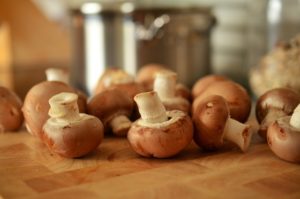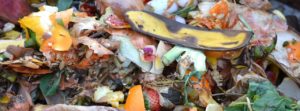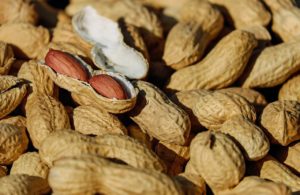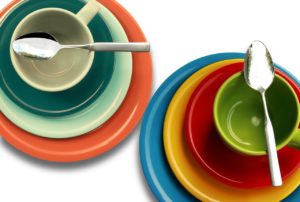 People Popping Vitamin D: the NY Times Has The Scoop On Supplements
People Popping Vitamin D: the NY Times Has The Scoop On Supplements
Do you ever ask yourself if you should be taking vitamins? “Though scientists recognize that there are 13 vitamins that are essential for good health, there is no real consensus on what they actually do and exactly how much of them we truly need.”
Yet somehow “the number of blood tests for vitamin D levels among Medicare beneficiaries (65 and older, mostly) increased 83-fold from 2000 to 2010, according to the Centers for Disease Control and Prevention.” These tests report ‘normal’ levels of vitamin D as insufficient…and so, millions of healthy people now think they have a deficiency, with some of them taking “supplemental doses so high they can be dangerous, causing poor appetite, nausea and vomiting.” – NY Times
If you think you are Vitamin D deficient or need a light boost then eat some mushrooms, they have lots of it!!! Especially the Maitakes and the Morels (apparently in season some places now).
Food Tank Tells ‘Seven Ways to Host a More Sustainable Passover Seder’
As some of you may already know, April 10 to April 18, 2017, marks the Jewish holiday of Passover. It is one of my favorite Jewish holidays, because it brings everyone together around a communal table!
Every year, I try a few more ways to ‘cook green’ besides using more plant-based recipes. Instead of the traditional Chicken Soup for my Vegetarian Matzo Balls, I made a Vegetable Miso Soup that was delicious! Here are Food Tank‘s published tips for keeping in line with environmental values and supporting a more sustainable food system:
1. Create New Innovative Meals From Holiday Leftovers
An important tenet of Judaism is “bal tashchit,” meaning not to waste. According to the U.N. Food and Agriculture Organization (FAO), roughly one-third of all food produced for human consumption is lost or wasted each year. This Passover, instead of throwing away uneaten food, incorporate leftovers into stir-fry dishes or stews, such as vegetarian cholent (a traditional Jewish stew).  And for food that can’t be eaten, try composting, rather than throwing food into the trash. According to the Environmental Protection Agency (EPA), 20 percent of America’s methane emissions come from landfills.
And for food that can’t be eaten, try composting, rather than throwing food into the trash. According to the Environmental Protection Agency (EPA), 20 percent of America’s methane emissions come from landfills.
2. Serve Local and Sustainably Grown Food at Your Seder Table
The Seder table is a perfect place to incorporate locally grown food. For your charoset, a fruit and nut paste symbolizing brick and mortar, try buying locally grown or organic apples and fair-trade pecans. For your Seder plate, try buying more pasture-raised meat, eggs, and dairy products. And support farmers who are committed to sustainable practices in agriculture.
3. Unplug During Chol Hamoed
Spend leisure time with your family outdoors during the days of Chol Hamoed (the intermediate days between the festivals of Passover) instead of watching TV or using electronic entertainment. By taking an occasional rest from energy-intensive activities, you can save thousands of tons of carbon emissions a year. According to Dr. Laura Iraci of the Earth Science Division at the NASA/Ames Research Center, one hour of TV watching produces 54 kilograms of carbon dioxide, which is more than the 11 kilograms of carbon dioxide produced by burning one gallon of gasoline.
 4. Make Passover Eve a Meatless Monday
4. Make Passover Eve a Meatless Monday
Passover Eve and the night of the first Seder falls on a Monday. Try using this opportunity to go meatless for at least one of the Seders. Industrial meat is the number-one contributor to greenhouse gases. The Environmental Working Group (EWG) reports that the production, processing, and distribution of meat is resource-intensive. It requires huge amounts of pesticides, fertilizer, fuel, feed, and water. The EWG also found that red meat is responsible for 10 to 40 times as many greenhouse gas emissions as vegetables and grains.
5. Eat Ugly
Globally, we have a substantial wasted produce problem; 20 to 40 percent of all produce goes uneaten, mostly because it does not meet strict grocer cosmetic standards for size, shape, or color. A variety of grocery stores sells this ugly produce, including Whole Foods and Giant Eagle.
 6. Support good food policies
6. Support good food policies
Use dinner as an opportunity to discuss with friends and relatives how food should be a non-partisan issue. “Reduction of food losses and waste needs to be prioritized within political agendas,” says the Barilla Center for Food & Nutrition. ReFED, a collaboration of business, nonprofit, and government leaders fighting food waste in the United States, recommends standardizing date labeling, increasing food donation tax incentives, and expanding best practices in food recycling.
Find out where your legislators stand on food issues by checking out this scorecard from Food Policy Action.
 7. Offer, don’t serve
7. Offer, don’t serve
Even with careful planning, it’s hard to know how much people will eat. To allow for different sized appetites, let guests decide how much they want. Creating a buffet line or letting guests serve themselves at the table family-style can reduce what gets left behind on plates.
Apeel Sciences Protects Produce Naturally From Pests and Spoilage
“Apeel Sciences in Santa Barbara, California, is taking unused parts of plants—peels, rinds, the leftovers of the system—and recycling them to create two agriculture products: Invisipeel and Edipeel. With these products, the company seeks to reduce food waste, conserve energy, decrease water usage, and minimize the application of pesticides and chemical preservatives.
 Invisipeel protects crops before harvest while Edipeel is applied post-harvest to extend the shelf life of fresh foods by two to five times. Since bacteria, fungi, and insects identify food sources by recognizing specific molecules, Invisipeel is an ultra-thin layer of unfamiliar molecules, rendering these foods unrecognizable to pests. Edipeel works because it forms an ultra-thin barrier that slows water loss and oxidation in fresh produce, the two leading causes of spoilage.” – Food Tank, article by Joey Demarco
Invisipeel protects crops before harvest while Edipeel is applied post-harvest to extend the shelf life of fresh foods by two to five times. Since bacteria, fungi, and insects identify food sources by recognizing specific molecules, Invisipeel is an ultra-thin layer of unfamiliar molecules, rendering these foods unrecognizable to pests. Edipeel works because it forms an ultra-thin barrier that slows water loss and oxidation in fresh produce, the two leading causes of spoilage.” – Food Tank, article by Joey Demarco

Comments are closed.